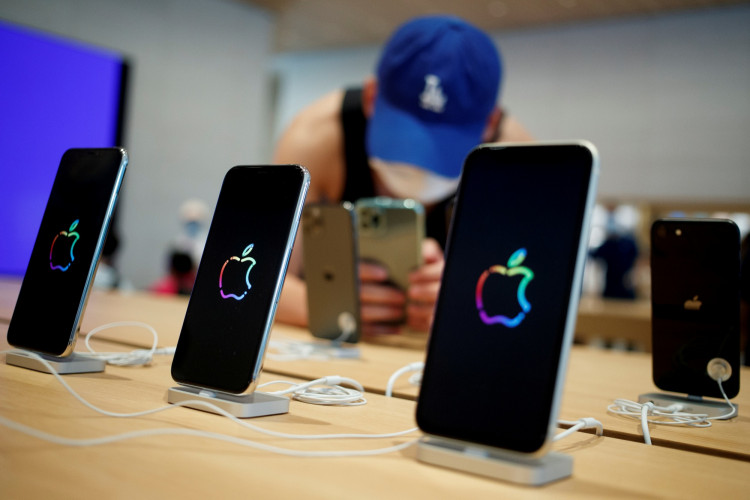Apple's dominance in China's smartphone market is under increasing pressure as foreign mobile phone shipments fell sharply in November. According to data from the China Academy of Information and Communications Technology (CAICT), shipments of foreign smartphones dropped 47.4% year-on-year to 3.04 million units, the lowest levels in recent memory. The figure also represents a staggering 51% decline compared to the previous month.
Apple, the largest foreign smartphone vendor in China, accounts for most of these shipments. Competitors like Samsung hold only a marginal share, underscoring the critical importance of the Chinese market to Apple's global business. The Cupertino-based company's challenges have grown as domestic players, particularly Huawei, gain momentum with innovative offerings.
Huawei, once crippled by U.S. sanctions targeting its access to advanced chips, has staged a dramatic comeback. Its Mate 60 and Mate 70 series, launched in 2023 and November 2024 respectively, have been met with strong demand. These devices include advanced chips manufactured domestically, demonstrating China's ability to innovate despite Western export controls. Huawei's resurgence has made significant inroads into Apple's market share, outpacing the American tech giant's growth in the third quarter of 2024, according to research firm IDC.
For Apple, the stakes in China are extraordinarily high. The region is not only its most important international market but also home to a vast supply chain network. However, Apple's annual net sales in Greater China have declined for two consecutive years, falling nearly 8% to $66.9 billion in its last fiscal year. The steep decline in foreign smartphone sales highlights the growing vulnerability of Apple's position.
The release of Apple's iPhone 16 series in September, equipped with promises of generative artificial intelligence features powered by Apple Intelligence, was intended to help the company regain its footing. However, these features are not yet available in China due to stringent regulations on artificial intelligence technologies, leaving Apple at a disadvantage compared to local competitors who have rapidly rolled out similar capabilities.
Apple has responded to the mounting competition with aggressive promotional strategies. To boost interest in its iPhone 16 models, the company announced discounts of approximately $70 for its Pro models ahead of the Lunar New Year holiday. This follows a series of discount campaigns launched at strategic moments to entice price-sensitive consumers.
Tim Cook, Apple's CEO, has also made multiple visits to China over the past year in a bid to strengthen partnerships and expand the company's local reach. Yet, these efforts have not fully countered the surge of domestic brands. Huawei, leveraging its advanced technology and nationalist appeal, has capitalized on a wave of local support, especially as Chinese consumers increasingly prioritize homegrown brands.
The decline in foreign smartphone shipments is not an isolated occurrence. October also saw a significant drop, with a 44.3% year-on-year decrease, further underscoring a trend of waning interest in foreign-made devices. Apple, which once held a near-monopoly among foreign vendors, is now grappling with challenges that extend beyond just Huawei. Companies like Xiaomi and Oppo are also innovating aggressively to capture market share.
China's tightening grip on data regulations and its push for self-reliance in critical industries further complicate Apple's position. The delay in Apple Intelligence's rollout is a case in point, as regulatory hurdles slow the introduction of competitive features that could bolster the iPhone's appeal in a rapidly evolving market.





